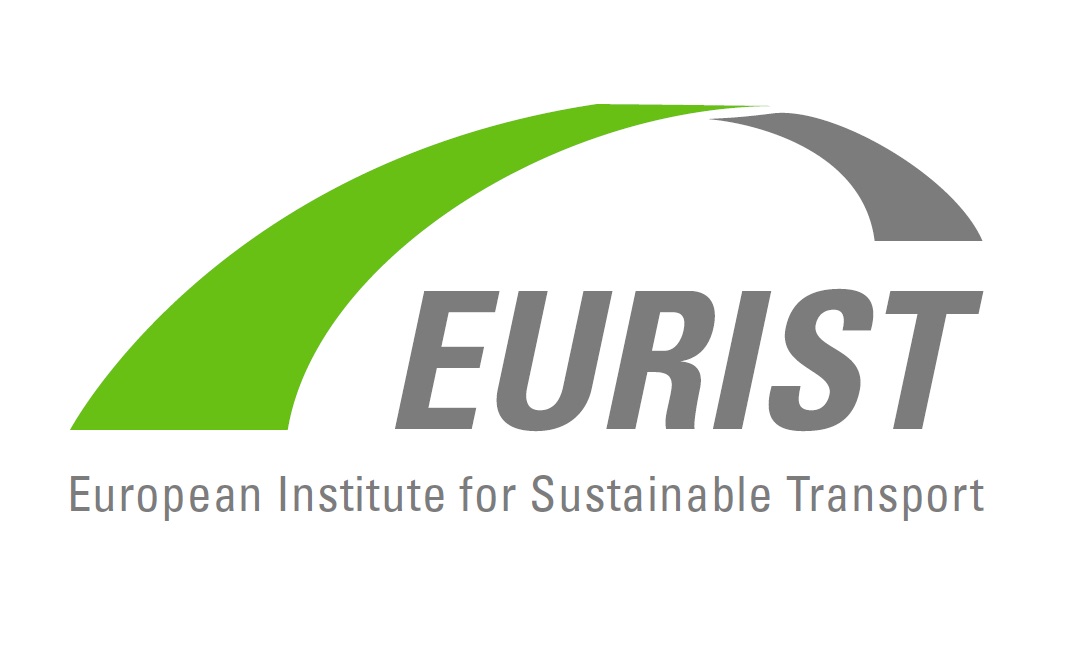Research, Awareness Raising and Education

Through research and analysis we are developing to date knowledge on best transport practices and policies, which is our main product. Topics covered so far are Parking, Travel Demand Management, Freight, Public Transport, Non-motorised Transport, Road Safety and Land Use Planning.
EURIST provides advise on transport and sustainability issues as well as on research and analysis of current policies and practice.
EURIST has also made education in the field of sustainable Transport one of our core working areas. The goal is to substantially influence the educational approach and curricula in the field of sustainable Transport teaching and capacity building worldwide.
EURIST’s goal is cooperating with research institutions, looking to initiate lectures, training and seminars on multidimensional knowledge-exchange between industrialized, transition and developing regions – to the benefit of all.
2017 – 2019
Project Curriculum Jugendmobilität (JUMO) – Mobility Curriculum for the Youth
Das Projekt verfolgt das Ziel, die Leitbilder und Kenntnisse deutscher Jugendlicher in Bezug auf das Thema „Nachhaltige Mobilität“ zu verbessern. Im Mittelpunkt steht die Erlangung einer „nachhaltigen“ Mobilitätskompetenz bei Jugendlichen zwischen 15 und 18 Jahren.
Die methodische Umsetzung erfolgt dabei über die Produktion von 6 kurzen, an der Lebenswelt der Schüler orientierten Dokumentarfilmen zwischen 5 und 7 Minuten Länge. In den Filmsequenzen, sollen die unterschiedlichen Bereiche Radfahren, ÖPNV, Laufen, Mobilität und Stadtentwicklung, Elektromobilität sowie der Bereich Car und BikeSharing / integrierte Mobilität in verständlicher Weise thematisiert und anhand von Beispielen erklärt werden.
Read more
Die Filme werden zusammen mit Arbeitsbögen, Projektvorschlägen, Hintergrundmaterialien und einer Broschüre zur Anwendung des Materials im Unterricht auf einer eigens dafür geschaffenen Internetseite zum Download bereitgestellt.
Der Schüler erfährt dabei nicht nur die Problematik der zunehmenden Umweltbelastung (Lärm, Luftbelastung, Klimaproblematik, usw.), des zunehmenden Platzbedarfs (Parken, Verkehrsstaus), des damit verbundenen Verlusts von urbaner Lebensqualität sowie der sozialen Dimension von Mobilität (Nutzungskonflikte, steigende Transportkosten). Es werden zudem durch verschiedene Schauplätze auch die internationale Bedeutung von Mobilität und Verkehr sowie regionale Maßnahmen und Lösungen für umweltfreundliche Mobilität dargestellt.
Die Verbreitung der Materialien erfolgt bundesweit durch eine effektive Öffentlichkeitskampagne, unter anderem über die Medienzentren der Schulkreise sowie durch Präsentationen auf verschiedenen Webseiten, in Zeitschriften, Foren und auf Konferenzen. Die Anwendbarkeit und die Wirkung des Materials auf die Schüler werden während eines Testlaufs des Projekts an „Pilotschulen“ evaluiert.
Supervision and Support in Student Projects
Being an expert in sustainable transport, EURIST is often approached my national and international students and members of the workforce who are interested in doing research projects in sustainable transport. EURIST’s experience, together with our expert network provides the perfect opportunity to support and supervise such projects.
Internships
Whether high school students, university students or simply people with an interest in developing their knowledge in sustainable transport, EURIST offers internships for different lengths of time. If you are interested in applying for an internship, please feel free to contact Dr. Jürgen Perschon at info@eurist.info and we will contact you back.
2014
Ministerial Workshop on integrated transport in Shimla, India
EURIST’s CEO Jürgen Perschon was invited to give an introduction on latest achievements in sustainable urban transport at the Ministerial Meeting on Transport in India. On June 26th Perschon explained Mass Rapid Transit and integrated multimodal transit options for the hilly regions in India. The conference was attended by 17 states and took place in Shimla/Himalaya Region.
2013
Financing Sustainable Transport in Africa
On behalf of the Umweltbundesamt (the German “Federal Environment Agency”), the European Institute for Sustainable Transport (EURIST), in close consultation with the SLoCaT Partnership on Sustainable, Low Carbon Transport (www.slocat.net), has conducted a study that identifies, analyses and compares financing and evaluation policies of transport projects in emerging and developing countries – with a particular focus on Sub-Saharan Africa.
The full project report is available in our publications.
2012
TEST Network Training Workshop
Transport and Environment in Sub-Saharan Africa
The aim of this study was to provide and introduction to the transport and environment issues in Sub-Saharan African (SSA) countries. It focused on the key transport-related areas of air and noise pollution, road safety, traffic flow management, equity and climate change. In addition, best practice case studies from SSA and internationally in these areas mare identified. Finally, the study outlines conclusions and recommendations to assist the development of sustainable transport systems in SSA countries.
A project report is available in our publications.
2009 – 2010
Park(ing) Day
Park(ing) Day is an annual global event which temporarily transforms parking spaces into public spaces. In this event, citizens get a feel of what it could be like if there were less parking areas and instead more space for social activities, thereby drawing attention to the need of more urban open spaces. In 2009 and 2010, EURIST interns helped to organise EURIST’s participation in the Park(ing) day in Hamburg.











